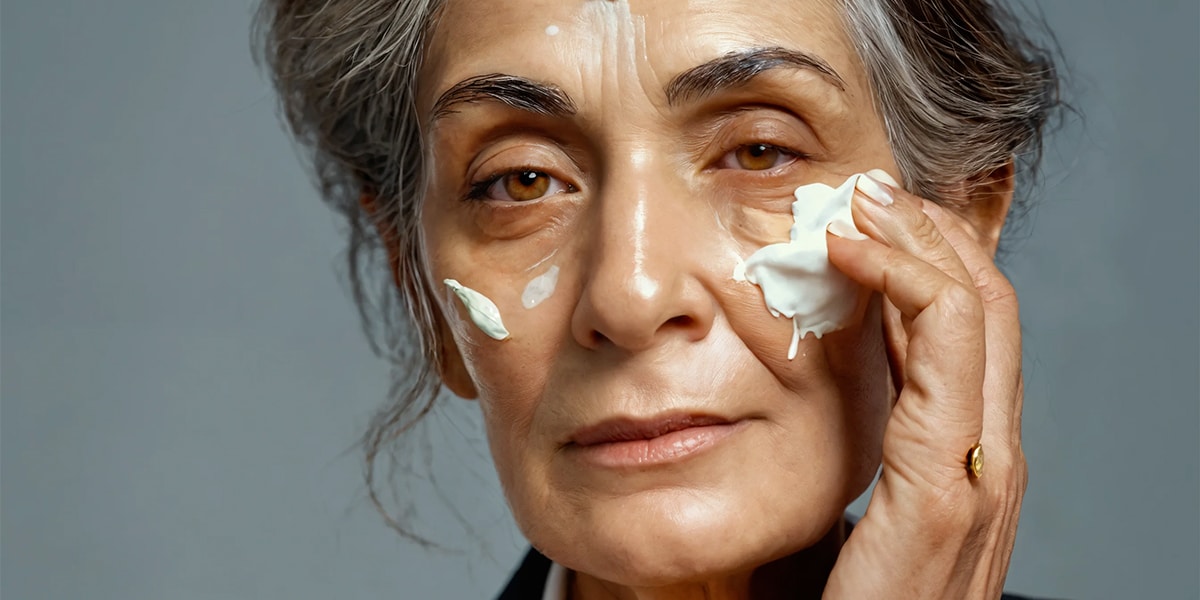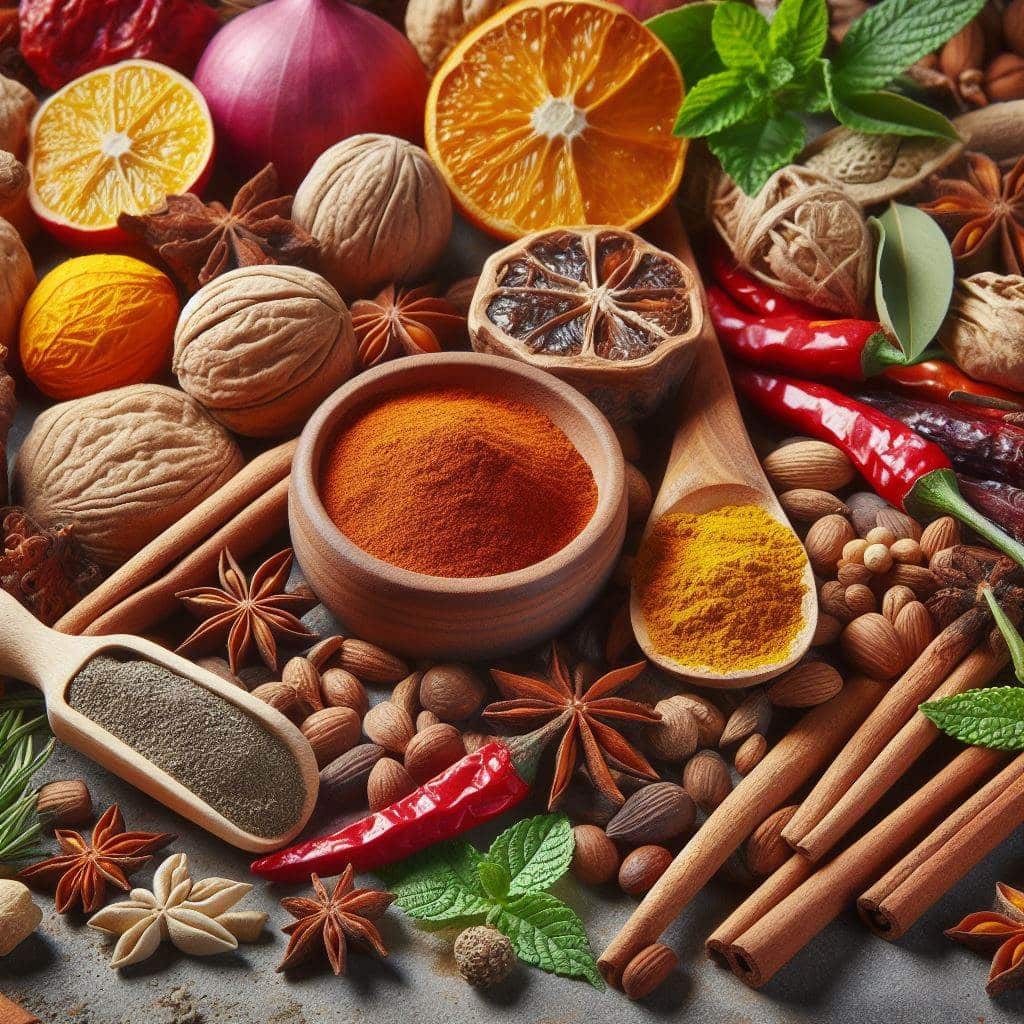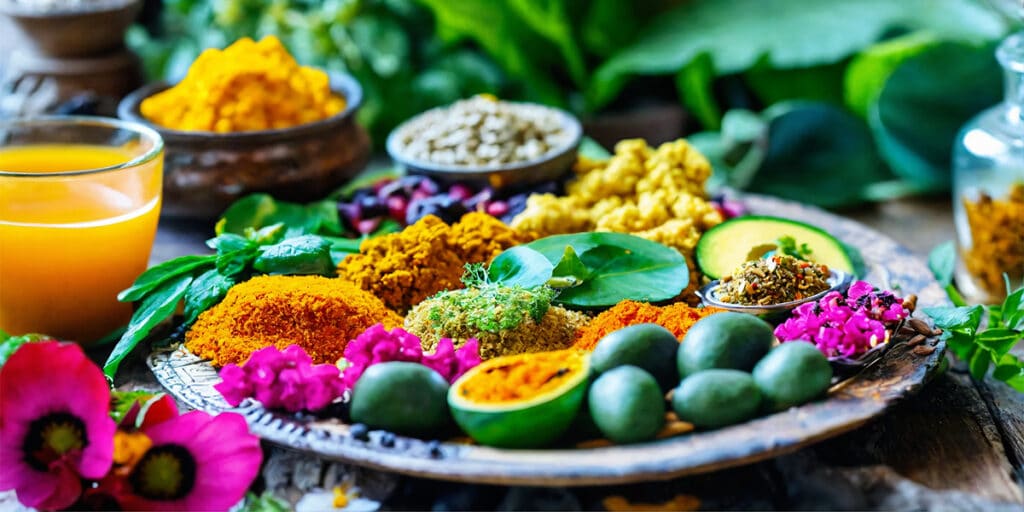Diabetes, a condition characterized by elevated blood sugar levels, doesn’t just impact internal health; it also has significant implications for skin health. Individuals with diabetes often face unique skincare challenges, including dryness, delayed wound healing, and an increased risk of infections. In this context, Ayurveda, with its holistic approach to wellness, offers valuable insights and solutions for managing skin health.
This guide explores Ayurvedic practices and natural remedies that support glowing, healthy skin for those managing diabetes, blending ancient wisdom with modern understanding.
The Ayurvedic Approach to Skin Health
In Ayurveda, the skin is more than just the body’s outermost layer; it is a reflection of the body’s internal health and balance. According to Ayurvedic principles, the skin’s condition is directly influenced by the doshas—Vata, Pitta, and Kapha—which are the fundamental energies that govern all biological processes. Skin issues, ranging from dryness to inflammation, are often seen as manifestations of deeper imbalances within these doshas.
For individuals with diabetes, the interplay between blood sugar levels and doshas becomes particularly significant. Elevated blood sugar levels can disrupt the body’s equilibrium, exacerbating the Pitta dosha, known for its fire and water elements. This imbalance can lead to various skin concerns, such as dryness, acne, and in more severe cases, infections and slow-healing wounds. The heightened Pitta dosha can cause an increase in heat and inflammation within the body, manifesting externally as skin irritation or sensitivity.
Recognizing these signs, Ayurveda advocates for a holistic approach to managing skin health, especially for those with diabetes. The focus is on restoring internal balance, primarily through diet, lifestyle adjustments, and herbal remedies. An Ayurvedic diet for balancing Pitta, for example, would include cooling and nourishing foods, such as leafy greens, cucumbers, and coconut water, while reducing spicy, fried, and acidic foods that can further inflame Pitta.
In addition to dietary changes, Ayurveda emphasizes the importance of regular detoxification, stress management practices like yoga and meditation, and the use of Ayurvedic herbs known for their skin-healing properties. Herbs such as neem, turmeric, and aloe vera play a crucial role in calming inflammation, healing the skin, and improving overall health.
By addressing skin health from an Ayurvedic perspective, individuals with diabetes can take a more comprehensive approach to their care. It’s not just about treating symptoms but nurturing the body’s internal balance for lasting wellness and radiance. This holistic management of diabetes and its effects on the skin underscores Ayurveda’s timeless wisdom and its relevance in today’s health-conscious world.
Key Ayurvedic Skincare Practices for Diabetes
Dietary Adjustments for Skin Health
In Ayurveda, diet plays a crucial role in maintaining skin health and managing diabetes. Consuming a balanced diet rich in leafy greens, nuts, seeds, and antioxidant-rich fruits can profoundly nourish the skin. These foods not only provide essential nutrients that promote skin health but also support blood sugar balance. Ayurvedic principles further advise minimizing the intake of foods that can spike blood sugar levels and heat the body, such as spicy and fried items, as these can potentially exacerbate skin issues by aggravating the Pitta dosha. Incorporating whole grains, legumes, and healthy fats into the diet also aids in maintaining a steady glucose level and ensures the skin remains hydrated and vibrant.
Herbal Remedies and Supplements
Ayurveda boasts a wealth of herbs known for their skin-healing and blood sugar-regulating properties. Neem, with its purifying and antibacterial qualities, is excellent for tackling acne and skin infections common in diabetic skin. Turmeric, celebrated for its anti-inflammatory and antioxidant effects, can significantly enhance skin radiance and heal wounds. Amla, or Indian gooseberry, is a potent source of vitamin C, vital for collagen production and skin repair. Incorporating these herbs into one’s diet or using them topically in skincare formulations can provide a two-fold benefit: they address skin concerns directly while aiding in blood sugar control indirectly.
Detoxification and Cleansing
Panchakarma, the cornerstone of Ayurvedic detoxification, offers profound benefits in removing toxins (Ama) that contribute to both diabetes and related skin problems. This series of five actions meticulously cleanses the body, enhancing its ability to metabolize nutrients and insulin more effectively. By restoring the body’s natural balance, Panchakarma not only helps in managing diabetes more effectively but also in alleviating associated skin conditions by purifying the blood and reducing systemic inflammation.
Mind-Body Practices
Stress is a well-known exacerbator of both diabetes and skin conditions. Ayurveda suggests regular engagement in mind-body practices like yoga and meditation to manage stress levels. Specific yoga asanas (poses) and pranayama (breathing exercises) are designed to stimulate and balance the body’s energy channels, supporting overall metabolic health and enhancing skin quality. Meditation fosters a sense of calm and balance, which is reflected in clearer, more radiant skin. Together, these practices form a holistic approach to managing diabetes and promoting skin health, embodying Ayurveda’s principle of harmony between the mind, body, and spirit for optimal wellness.
Incorporating Ayurvedic Skincare into Your Routine
Practical Steps to Get Started
Embracing Ayurvedic skincare principles offers a holistic approach to nurturing your skin, particularly beneficial for those managing diabetes. Here’s how to gradually integrate these practices into your daily routine:
Understand Your Skin Type: Ayurveda categorizes skin types based on the dominant dosha: Vata (dry), Pitta (sensitive), and Kapha (oily). Identifying your skin type can guide you in choosing the right Ayurvedic herbs and formulations.
Simplify Your Skincare: Start by simplifying your current skincare regimen. Choose natural, minimal ingredient products that align with Ayurvedic principles, such as herbal cleansers and moisturizers.
Incorporate Key Herbs: Gradually introduce Ayurvedic herbs known for their skin benefits. For instance, add turmeric for its anti-inflammatory properties, neem for its antibacterial benefits, or Amla for its high vitamin C content to your diet or topical applications.
Stay Hydrated: Hydration is key in Ayurveda. Drink plenty of water throughout the day and consider herbal teas like chamomile or licorice that support skin health.
Oil Massage (Abhyanga): Incorporate a daily self-massage with oils suitable for your skin type. Sesame oil is nourishing for Vata, coconut oil cools Pitta, and sunflower oil is light for Kapha types. This practice moisturizes the skin and promotes circulation.
Be Patient and Consistent: Ayurvedic remedies and practices often work gradually and require consistency. Give your body and skin time to adjust and heal.
Mindful Skincare Rituals
Mindfulness transforms skincare from a routine task into a nurturing, self-care ritual that benefits the body and spirit. Here’s how to infuse mindfulness into your Ayurvedic skincare practice:
Set an Intention: Before beginning your skincare routine, take a moment to set an intention. It could be to calm your mind, to heal and nourish your skin, or simply to show gratitude to your body for all it does.
Focus on the Present: As you apply each product, concentrate on the sensation against your skin, the aroma of the herbs, and the action of massage. This presence helps connect you with the moment and turns your routine into a meditative practice.
Gratitude and Affirmations: End your skincare ritual by expressing gratitude for your health and well-being. Positive affirmations can reinforce self-love and confidence, enhancing the spiritual benefits of your Ayurvedic practice.
Nighttime Rituals: Ayurveda places significant importance on nighttime routines for rejuvenation. Consider gentle facial massages or applying an herbal mask before bed to support skin regeneration.
Seasonal Adjustments: Be mindful of the seasons and adjust your skincare accordingly. Ayurveda teaches that our bodies and skin have different needs depending on the time of year. Incorporate seasonal herbs and adjust your skincare products to match these changes.
Incorporating Ayurvedic practices into your skincare routine isn’t just about applying products; it’s about nurturing a deeper connection with yourself and embracing a holistic approach to wellness.
| Ingredient | Properties | Benefits for Skin |
|---|---|---|
| Neem (Azadirachta indica) | Antibacterial, antifungal | Helps treat infections and improves skin clarity |
| Turmeric (Curcuma longa) | Anti-inflammatory, antioxidant | Reduces inflammation and heals wounds |
| Amla (Emblica officinalis) | High in Vitamin C, rejuvenative | Promotes collagen production and skin repair |
| Manjistha (Rubia cordifolia) | Detoxifies, improves circulation | Enhances complexion and evens out skin tone |
| Sandalwood (Santalum album) | Cooling, soothing | Relieves skin irritation and protects against UV damage |
3 Ayurvedic Skincare Recipes for Diabetes Wellness
Incorporating Ayurvedic principles into your skincare routine can provide natural, effective solutions for managing the unique skin concerns that often accompany diabetes. The following DIY Ayurvedic skincare recipes are crafted to address these concerns, utilizing natural ingredients to nourish, protect, and heal the skin.
Neem and Turmeric Healing Face Mask
Ingredients:
- 2 tablespoons neem powder
- 1 tablespoon turmeric powder
- Honey or Aloe Vera gel for sensitive skin (optional)
Instructions:
- Mix the neem and turmeric powders in a bowl.
- Add enough honey or Aloe Vera gel to form a paste.
- Apply the mask evenly over your cleansed face, avoiding the eye area.
- Leave on for 10-15 minutes, then rinse off with lukewarm water.
- Pat your skin dry and follow up with a moisturizer.
Benefits: This mask harnesses the antibacterial and anti-inflammatory properties of neem and turmeric to reduce acne, heal minor wounds, and brighten the skin. It’s particularly beneficial for those experiencing skin infections or dullness due to high blood sugar levels.
Amla and Yogurt Brightening Mask
Ingredients:
- 1 tablespoon Amla (Indian gooseberry) powder
- 2 tablespoons natural yogurt
Instructions:
- Combine the Amla powder and yogurt in a bowl until you have a smooth mixture.
- Apply the mixture to your face and neck, leaving it on for about 20 minutes.
- Rinse off with cool water and gently pat your skin dry.
Benefits: Amla, rich in vitamin C, works with the lactic acid in yogurt to exfoliate, brighten, and revitalize the skin, promoting a healthy glow and aiding in the reduction of dark spots.
Coconut Oil and Sugar Exfoliating Scrub
Ingredients:
- 2 tablespoons virgin coconut oil
- 2 tablespoons fine sugar
- A few drops of lavender or chamomile essential oil (optional)
Instructions:
- Mix the coconut oil and sugar in a bowl until you have a consistent paste.
- For added relaxation and anti-inflammatory benefits, incorporate a few drops of lavender or chamomile essential oil.
- Gently massage the scrub onto damp skin in circular motions, focusing on rough areas.
- Rinse off with warm water and pat your skin dry.
Benefits: This gentle exfoliating scrub removes dead skin cells, promoting circulation and rejuvenation. Coconut oil deeply moisturizes, helping to address the dryness often seen in diabetic skin, while the essential oils soothe and calm.
These Ayurvedic skincare recipes offer simple, yet effective ways to care for your skin naturally, addressing the specific challenges faced by those with diabetes. Regular use of these treatments can help improve skin texture, tone, and overall health, enhancing your natural glow and supporting your wellness journey.
Ayurvedic Skincare for Diabetes: Your FAQs Answered
Can Ayurveda help with diabetic skin conditions?
Yes, Ayurveda offers several remedies and practices that can significantly improve skin health by addressing the root causes of skin issues in diabetes, such as dryness, infections, and slow healing.
What are the best Ayurvedic herbs for diabetic skin care?
Herbs like Neem, Turmeric, Amla, and Manjistha are excellent for their healing, anti-inflammatory, and antibacterial properties, ideal for diabetic skin care.
How does diabetes affect skin health?
Diabetes can lead to dryness, delayed wound healing, and an increased risk of infections due to changes in blood sugar levels affecting the body’s circulation and immune response.
Are there any Ayurvedic dietary recommendations for skin health in diabetes?
A diet rich in vegetables, whole grains, and antioxidants, along with Ayurvedic superfoods like Amla, can support skin health and overall wellness in diabetes.
Can Ayurvedic treatments reduce the risk of skin infections in diabetes?
Yes, by using antibacterial and antifungal herbs and maintaining good skin hygiene, Ayurvedic practices can help reduce the risk of skin infections.
How often should I use Ayurvedic oils and herbs for skin care in diabetes?
Regular use, as part of a daily skincare routine, is recommended. However, the frequency and products should be tailored to your skin type and current conditions, preferably under the guidance of an Ayurvedic practitioner.
Do Ayurvedic skincare practices have any side effects?
When used correctly, Ayurvedic skincare practices have minimal side effects. However, it’s essential to perform a patch test for topical applications and consult with a healthcare provider for personalized advice.
Can stress management improve diabetic skin health?
Absolutely. Stress can exacerbate skin problems by triggering inflammation. Ayurvedic practices like meditation and yoga can help manage stress, improving skin health.
Are there Ayurvedic practices specifically for dry skin in diabetes?
Yes, using moisturizing oils like coconut or sesame oil for daily Abhyanga (self-massage) can deeply nourish and hydrate dry skin, which is common in diabetes.
Where can I find authentic Ayurvedic products for skincare?
Look for reputable suppliers and brands that specialize in Ayurvedic products, ensuring they use high-quality, natural ingredients and provide transparent product information.
Citations
- “Effect of integrated yoga practices on immune responses in examination stress – A preliminary study“. Hemant Bhargav, et al. – International Journal of Yoga 2011.
- “Curcumin: A Review of Its’ Effects on Human Health“. Susan J. Hewlings and Douglas S. Kalman. – Foods 2017.






